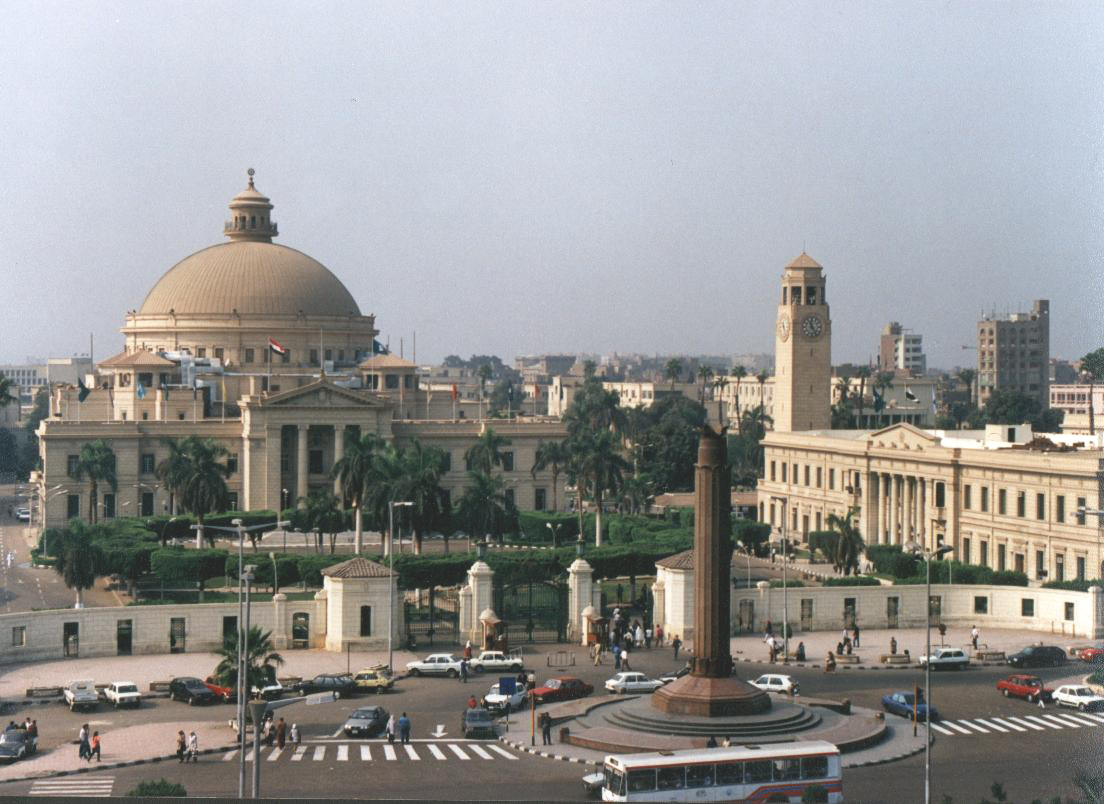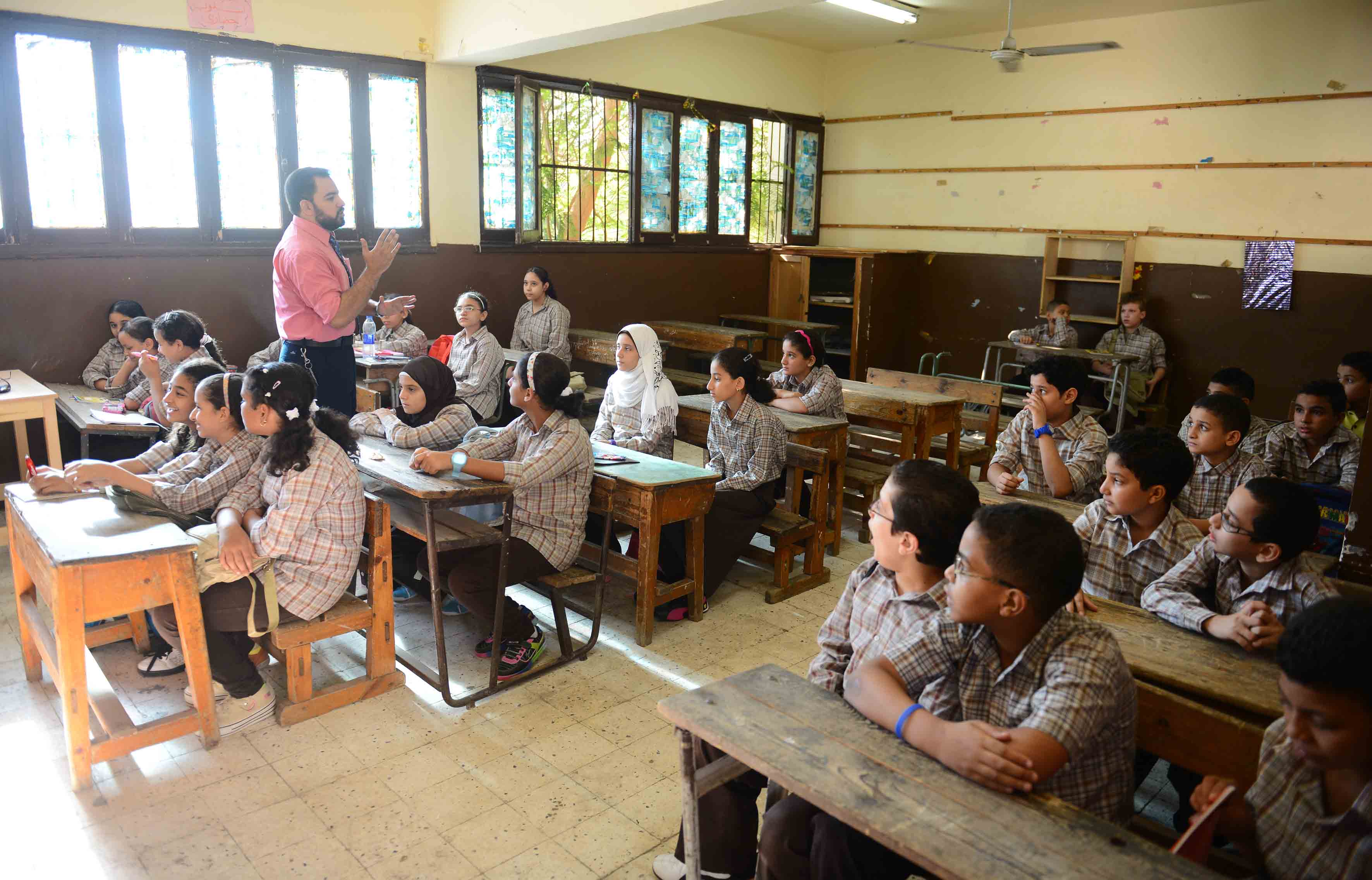The teachers strike that kicked off yesterday makes headlines in most of Sunday's papers. The liberal Al-Wafd paper leads with the satirical headline: “First period: Strike."
The paper dedicates almost half of one of its inside pages to updates from different provinces depicting the magnitude and expansion of the protest. In Giza, some teachers rallied in mosques and called on people not to send their children to schools. Those teachers also affirmed that they will not return to classrooms until all their demands are met, says Al-Wafd.
According to privately-owned Al-Shorouk, Minya Governorate was the most affected by the teachers’ strike. Instructors there added the sacking of Education Minister Ahmed Gamal Eddin Moussa to their list of demands.
The strike aims at pressuring the government to raise teachers’ salaries and improve their working conditions, reports Al-Shorouk. The paper quotes the education minister as warning the striking teachers: “Most of the teachers’ demands have been met," he said. "As for the rest of the demands, such as imposing a minimum wage, they have nothing to do with the [Education] Ministry."
Moussa is also quoted on the front page of state-owned Al-Akhbar bashing protesting teachers. “Those on strike are not patriotic and governors are in charge of punishing them," he said.
Apart from covering the uncertainty in the education world, today’s press emphasizes the brewing tension between political parties and the ruling Supreme Council of the Armed Forces (SCAF) over the rules that will dictate the upcoming parliamentary poll. The state-owned Al-Ahram leads with the headline, “The cancellation of the individual candidacy system and the institution of the party-list system is being considered.”
The report also quotes local development minister Mohamed Ahmed Attiya as saying that the government is studying the option of implementing the list-based candidacy system rather than a mixed system that combines list-based and individual candidacies. In late July, the SCAF passed a law that combined both systems. The law stirred outrage among political groups and parties, contending that such a mixed system would leave the door open to bribery and thuggery in Egypt’s first post-Hosni Mubarak parliamentary elections, and could also allow remnants of the now-dissolved National Democratic Party (NDP) to re-enter the parliament.
In an attempt to heal the rift, military Chief of Staff Sami Anan is expected to meet today with representatives from different political groups, reports Al-Shorouk.
The political groups will make several demands in today’s meeting, reports Al-Akhbar, including: amending the parliamentary elections law, abrogating the state of emergency, halting the referral of civilians to military tribunals, ensuring security at voting locations, specifying a date for the elections, and enacting a law that will prevent members of the formerly ruling NDP from running for parliament.
Finance Minister Hazem al-Beblawy has sent a request to the head of Egypt’s Central Auditing Organization Gawdat al-Malt to submit a detailed report on the accusations that Mubarak’s regime squandered billions of employees’ public insurance savings, reports Al-Akhbar newspaper, in news highlighted by other newspapers as well. The privately-owned Al-Tahrir quotes the head of the Retired Employees Syndicate as saying that the lost insurance money is estimated between LE133 and 135 billion and that Mubarak’s government failed to pay interest on this sum, which began to accumulate in 1987.
Following up on the attack on the Israeli Embassy, Al-Ahram reports that investigators found that a rich man had hired "150 thugs" to attack the building. The thugs were reportedly told that they should go to the embassy to avenge the killing of Egyptian officers by Israelis along the Egypt-Israel border, the story goes on, and each thug was paid between LE5000 and 11,000.
Columnist Ahmed al-Sawy dedicates his column in Al-Shorouk to offer an alternative take on the mourning of Gamal Abdel Nasser’s son, Khaled Abdel Nasser, who passed away last week. In the column, titled "The January Nasser," Sawy contends that most Egyptians who attended the funeral were not really mourning the death of Nasser’s son, but that of Nasser himself.
Sawy then raises the question of whether Egypt needs a new Nasser. He writes that while Egypt might need a patriotic, honest and brave leader like Nasser, the former president's July 1952 autocratic regime should not be reproduced. “[The 25 January revolution] is a historical rupture between the July republic and a new democratic republic," he writes.
Egypt's papers:
Al-Ahram: Daily, state-run, largest distribution in Egypt
Al-Akhbar: Daily, state-run, second to Al-Ahram in institutional size
Al-Gomhurriya: Daily, state-run
Rose al-Youssef: Daily, state-run
Al-Dostour: Daily, privately owned
Al-Shorouk: Daily, privately owned
Al-Wafd: Daily, published by the liberal Wafd Party
Youm7: Daily, privately owned
Al-Tahrir: Daily, privately owned
Sawt al-Umma: Weekly, privately owned
Al-Arabi: Weekly, published by the Arab Nasserist party




